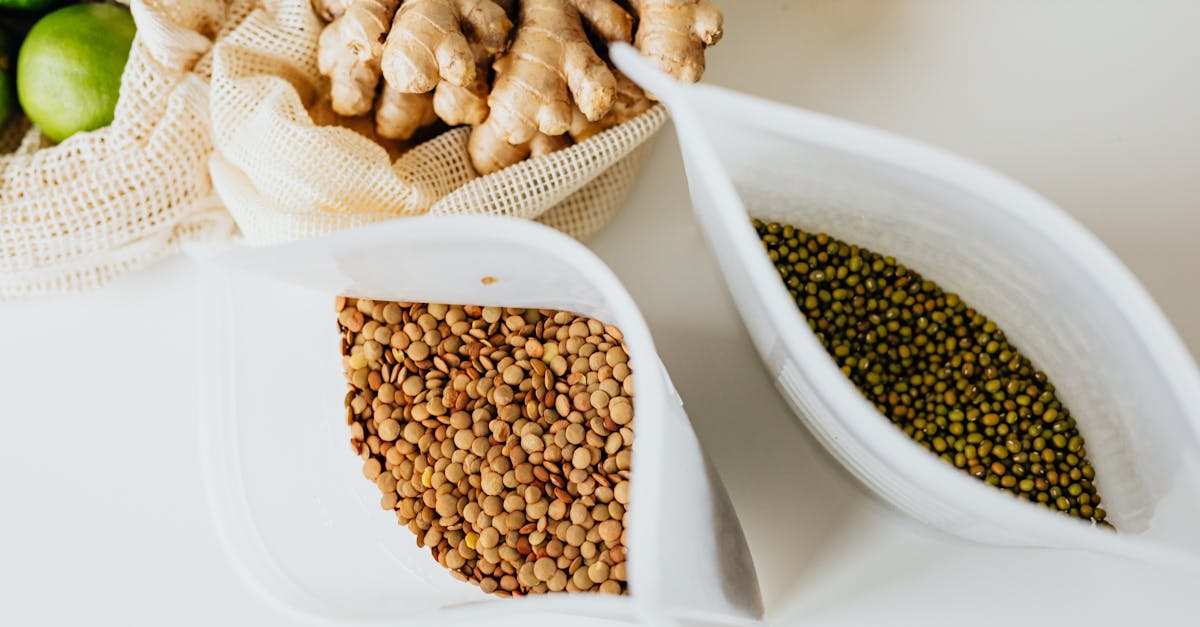Understanding Probiotics and Prebiotics
Introduction to Probiotics and Prebiotics
In the realm of digestive health, the terms "probiotic" and "prebiotic" often surface, leading many to ponder their differences and significance. These components play pivotal roles in maintaining a balanced gut environment, a crucial factor for overall well-being. While both are integral to gut health, they support the body in distinct ways. Understanding their functions is essential for anyone looking to optimize their health through diet. Though they sound similar, their physiological roles are quite different. So, what exactly are probiotics and prebiotics, and how do they benefit our health?
Advertisement
What Are Probiotics?
Probiotics are live beneficial bacteria that naturally reside in our body, particularly in the gut. They aid in digestion, assist in nutrient absorption, and bolster the immune system. Sources of probiotics include fermented foods like yogurt, kefir, and sauerkraut. When gut flora becomes unbalanced, taking probiotics can help restore a healthy microbial environment. This balance is crucial for preventing digestive disorders, infections, and inflammation-related conditions. Additionally, probiotics have been found to help in managing lactose intolerance and enhancing mental health by influencing the gut-brain axis.
Advertisement
What Are Prebiotics?
Prebiotics, unlike probiotics, are non-digestible fibers found in various plant foods. They serve as nourishment for the beneficial bacteria in the gut, encouraging their growth and activity. Common sources of prebiotics include onions, garlic, asparagus, and bananas. By feeding probiotics, prebiotics play a crucial role in maintaining a healthy gut microbiome. This process, in turn, supports digestive processes, improves calcium absorption, and enhances overall gut health. While not directly providing bacteria, prebiotics are critical for sustaining a diverse and flourishing microbial environment.
Advertisement
The Synergy Between Probiotics and Prebiotics
The interaction between probiotics and prebiotics is often described as a symbiotic relationship, known as synbiotics. When consumed together, they work synergistically to enhance each other's benefits. Probiotics introduce live, friendly bacteria to the gut, while prebiotics ensure these bacteria are well-fed and thriving. This combination maximizes the positive effects on the gut microbiome, leading to improved digestion, absorption of nutrients, and strengthened immunity. Including both in your diet can be a powerful strategy for maintaining optimal gut health.
Advertisement
The Role of Probiotics in Health
Probiotic-rich foods and supplements have been linked to numerous health benefits beyond digestion. They have shown potential in reducing the severity of allergies and eczema, promoting heart health by reducing cholesterol levels, and even aiding weight management. Certain strains of probiotics have been found to combat harmful bacteria, reducing the likelihood of infections and diseases. Moreover, ongoing research suggests a link between gut health and mood disorders, hinting at the role of probiotics in alleviating symptoms of stress and anxiety.
Advertisement
Prebiotics and Their Health Benefits
Prebiotics offer a variety of health benefits, primarily by supporting the growth of good bacteria. This support translates to natural detoxification processes, helping the body eliminate waste more effectively. Prebiotics enhance mineral absorption, contributing to bone health. There's growing evidence supporting the role of prebiotics in reducing the risk of colorectal cancer by promoting a healthy digestive tract. Additionally, they play a significant role in regulating appetite and potentially assisting in weight management by modulating the hormones responsible for hunger and satiety.
Advertisement
Incorporating Probiotics into Your Diet
Including probiotics in your diet is relatively straightforward. Consuming fermented foods is one of the best ways to introduce beneficial bacteria to your gut. Yogurt with live cultures is a popular choice, but options such as kimchi, miso, and certain cheeses are excellent alternatives. Probiotic supplements are also available for those needing higher doses, but consulting a healthcare professional is advisable beforehand. It's important to aim for a diverse intake of probiotics, as different strains offer unique health benefits.
Advertisement
How to Get Enough Prebiotics
To reap the benefits of prebiotics, incorporate a variety of fiber-rich plant foods into your diet. Options include whole grains, legumes, fruits, and vegetables—each providing different types of prebiotics. Cooking methods can affect prebiotic content, so consuming raw or lightly cooked versions is often recommended. For those seeking additional sources of prebiotics, supplements are available, but natural food sources are generally preferred for their array of nutrients. Pairing prebiotics with probiotics can magnify their benefits.
Advertisement
Challenges and Misconceptions
Despite their benefits, some misconceptions exist about probiotics and prebiotics. It's important to remember that while probiotics are beneficial, not all bacterial strains provide the same effects. Similarly, not all fibers are prebiotics, emphasizing the need for informed dietary choices. Over-relying on supplements without dietary adjustments won't yield optimal results. For individuals with specific health conditions, some probiotic strains might not be advisable, warranting guidance from healthcare providers. With clarity and understanding, navigating the world of probiotics and prebiotics becomes easier.
Advertisement
Conclusion and Summary
Probiotics and prebiotics are essential components of a healthy diet, each playing unique roles in maintaining gut health. Probiotics introduce beneficial bacteria, while prebiotics nourish these bacteria, creating a flourishing gut environment. This dynamic duo has far-reaching health benefits, from improved digestion to strengthened immunity and potential mood enhancements. Incorporating a diverse mix of both in your diet can lead to a healthier, more balanced lifestyle. With growing awareness and research, understanding and utilizing the power of probiotics and prebiotics can significantly contribute to one's overall well-being.
Advertisement


